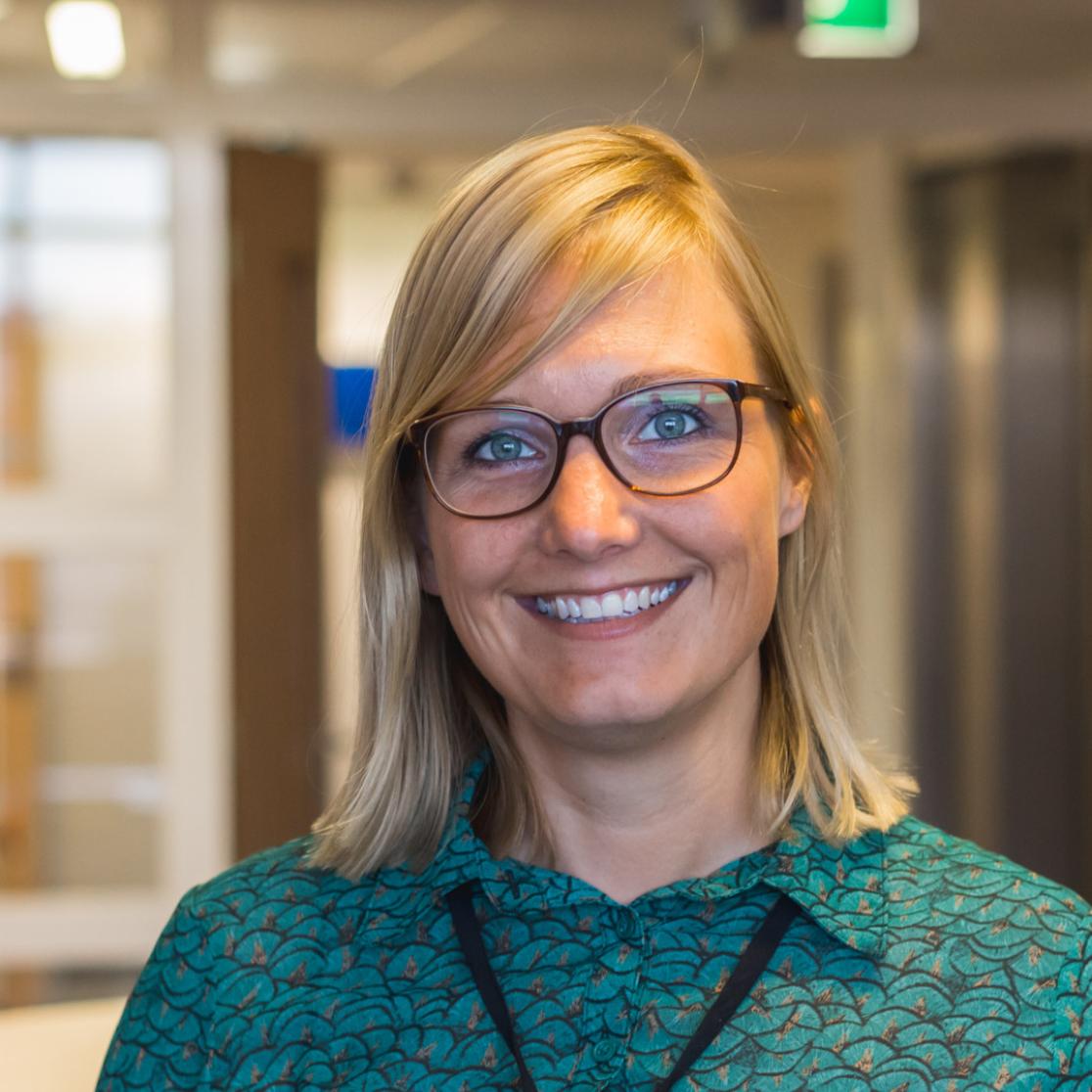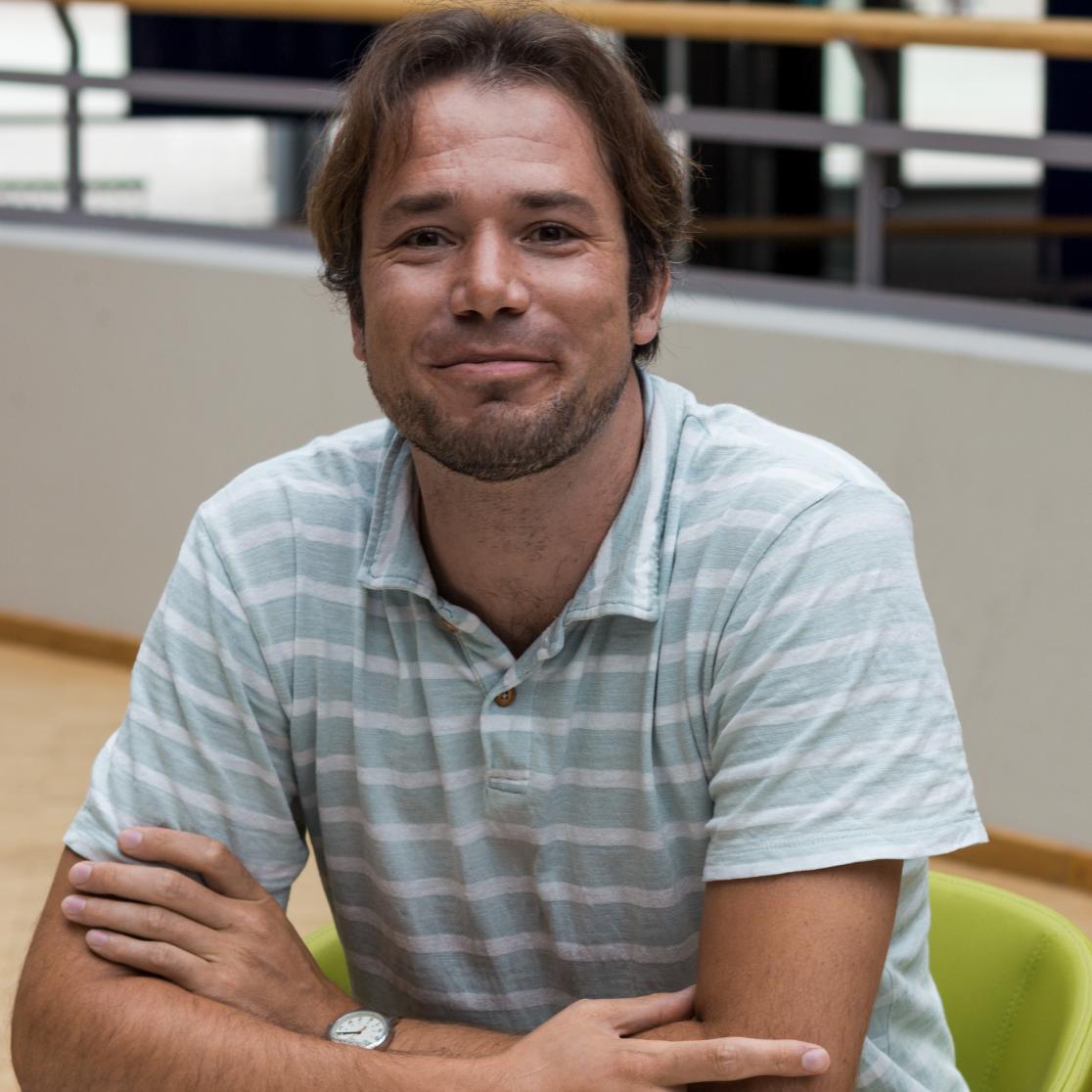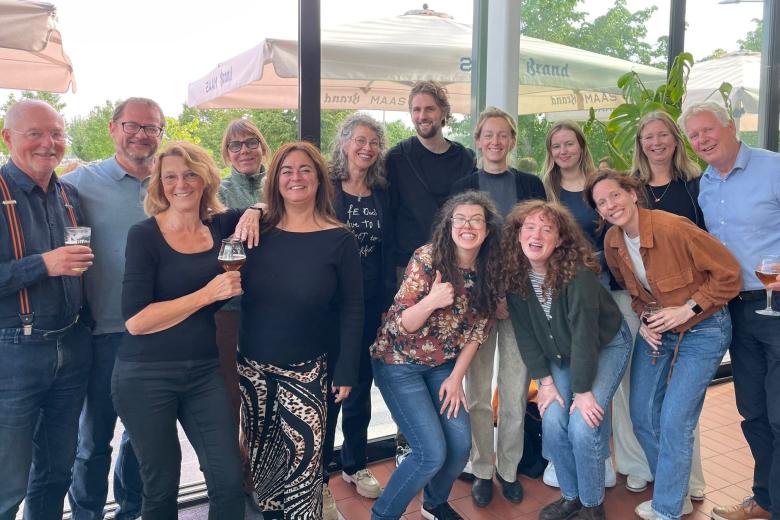Two FPN researchers receive NWO VENI grants
Earlier this month NWO announced new recipients of the coveted VENI grant. Two of the names on the list are researchers at the Faculty of Psychology and Neuroscience (FPN): Dr. Lotte Lemmens and Dr. Lars Hausfeld. We sat down with them to talk about their work.
Dr. Lotte Lemmens
Dr. Lotte Lemmens has been working at FPN (Department of Clinical Psychological Science) since 2010; first as a PhD-student, then as a post-doc, and since last year as assistant professor. All this time, she also worked as a therapist at Virenze-RIAGG, where she currently provides Cognitive Behavioural Therapy (CBT) for patients with various forms of Eating Disorders.
“And herein lies the link with my VENI project. Many of the patients that I see experience recurring episodes of binge eating. Meaning: they consume large amounts of food in a short period of time, accompanied by a sense of loss of control. Clients that come to our clinic are usually very motivated to change. Also, Anna (not her real name), who visits me every week. Anna works hard during our sessions, and makes specific plans to practice in between meetings. Despite hard work, motivation and a strong desire to change, it often turns out to be difficult to ‘beat the binge’. Anna told me that she ‘binged’ on her way home from our previous session. Instead of going home immediately, Anna went to the supermarket, bought binge-food, and ate it all when she came home. When she left the therapy room, there were no indications that this would happen. Actually, it was a great session! Anna had no clue about how this could happen. This made me wonder: what are the predictors of binge eating, and moreover, what can we do – also outside of the therapy room – to prevent binge eating episodes?”
With the VENI, Lotte wants to gain insight into the factors that drive binge eating and to examine how this information can be used to reduce the frequency of binge eating in real-time. She’ll use the theoretical model underlying Cognitive Behavioural therapy as a starting point. According to this theory, dysfunctional beliefs about eating, weight and body shape play a decisive causal role in the complex network of environmental, psychological, physiological, and behavioural factors that drive binge eating. Although CBT is currently the treatment of choice for binge eating, and is implemented worldwide, the theoretical model underlying the intervention is not yet backed-up by comprehensive empirical evidence. Lotte wants to see if dysfunctional cognitions are indeed a crucial factor in this network, or whether other factors are better predictors of binge eating This information will then be used to design and test an intervention aimed at preventing binge-eating in everyday life.

Dr. Lars Hausfeld
Six years ago dr. Lars Hausfeld started working at FPN as a PhD student and focused on neural processing of natural sounds and sound mixtures (including voices, music, and other sounds). Now with this VENI grant he aims to understand how we process background sounds which are irrelevant to the current situation and to apply this knowledge.
“Overall, my work is about how we are able to follow sounds in difficult listening situations, how we process unattended sounds, and to better determine contributing factors. Imagine you’re in a crowded bar with a lot of distracting sounds. Somehow we are able, most of the time, to understand what somebody is saying to us besides many other conversations and background music. I want to find out how this works, because right now there is no computational system out there that matches human performance. When understanding this mechanism better, we aim to translate and apply this knowledge.
Specifically, we aim to initiate the development of a device that will be able to read out your current sound of interest and extract and enhance it by filtering out background noise, at best in in real-time! Such a smart hearing device would be highly important for both clinical and non-clinical settings.”
Lars recalls that the most challenging part of the application process for the grant was not so much coming up with ideas for experiments, but creating a framework linking these studies. To do this he had to distill their essence, such that, regardless of scientific background, everyone could understand his proposed research and its relevance.

Also read
-
Most prestigious European grant to two UM scientists
Two Maastricht University professors are to receive the most prestigious European research grant for individual researchers: an ERC Advanced Grant, worth over €2.5 million. They are Lorenzo Moroni (MERLN) and Alexander Sack (FPN).

-
CIAO extends cooperation with UWV for four years
The Centre of Expertise for Inclusive Organisations (CIAO), under the banner of the Faculty of Psychology and Neuroscience at Maastricht University, has extended its successful cooperation with the UWV (Uitvoeringsinstituut Werknemersverzekeringen) for four years. We spoke to Gemma van Ruitenbeek...

-
Brain stimulation in people with neglect
Marij Middag (PhD Candidate) and Teresa Schuhmann (Professor of Clinical Applications of Non-invasive Brain Stimulation) from the Department of Cognitive Neuroscience at the Faculty of Psychology and Neuroscience, have recently published their paper Alpha transcranial alternating current stimulation...